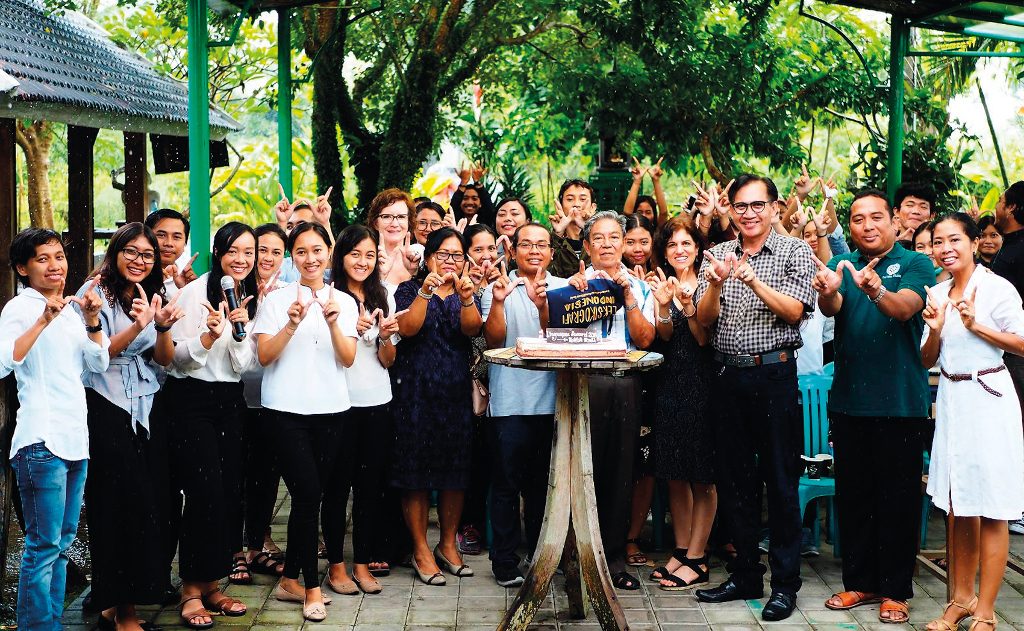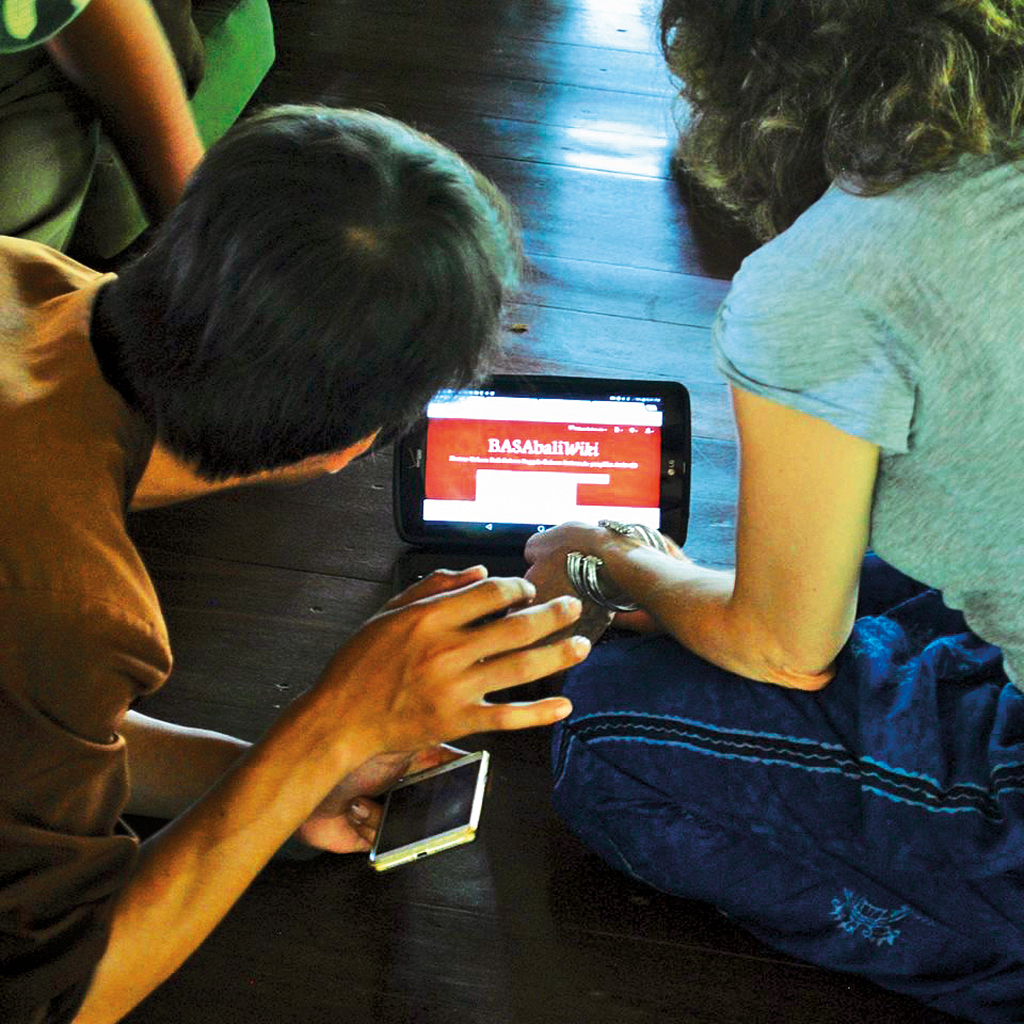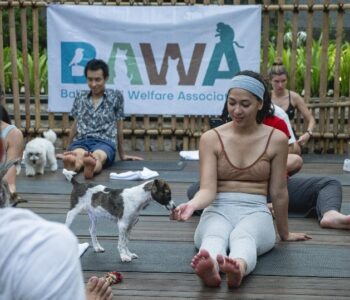There are all kinds of languages in the world. From verbal to visual communication, we can agree that language is one instrument we have in common. Some of us, however, may have nestled comfortably in one linguistic bubble that we tend to ignore a variety of other languages practised around the globe.
Did you know that there are around 7,000 languages left in the world and one is disappearing every two to four weeks? Not unlike plant and animal biodiversity, languages, too, deserve to be put in the spotlight and preserved for its values.

Whilst it’s humanly impossible to speak all languages on Earth, some of the world’s communities have taken initiatives to combat the erosion of local, indigenous languages that we can actively support or take an example from.
Taking one example not too far from home, a Bali-based organisation BASABali is alive and running with the aforementioned purpose in their manifesto. It was founded in 2011 powered by the belief that all languages act as a vehicle for transmitting culture and wisdom of that culture, and that a language of great culture such as Balinese, deserves recognition and use in the modern world and not be relegated to a language of home. This means it shouldn’t be perceived as unworthy of being practised in education, public affairs, and other official frames.
The sophisticated language of Balinese is exchanged between roughly 3.3 million mouths in this Indonesian island, with most of its speakers simultaneously using the national language, Bahasa Indonesia, and other languages (i.e. English). However, the Bali Cultural Agency informed us in 2011 that the number of people using Balinese in their daily lives does not exceed 1 million. It is indeed a minority language yet a linguistic treasure that deserves to develop and be maintained, alongside the official Indonesian language.
The brains and brawn behind BASABali have assembled a group of both local and international scholars and community members to work towards a synchronised goal: valuing and preserving Balinese. This way, there is pressure as well as recognition coming from both ends; the people from the community serve as an insider’s voice, whilst the international community exists to recognise it as an outsider that it certainly has cultural benefits and wisdom for the greater world.
Essentially, the BASABali collaboration is pioneering a language revitalisation methodology that is grounded by the belief that linguistic diversity is crucial to human sustainability and will require a significant shift in how we value local languages, primarily in today’s digital world.
Balinese is gradually evolving adjacent to the modern era. Having a local language spoken on the ground is fantastic, however, a great portion of communication now takes place in the online world. Establishing a presence in the digital space for the language is one of the main focuses that the team has successfully achieved in parts. Luckily, giant platforms such as Google, Facebook, and Twitter have been nothing but welcoming towards local languages. The project saw the creation of tools to empower the Balinese communities; provide resources for and encourage people to speak Balinese in digital platforms. It’s a thrilling sight to see members of Facebook groups speaking exclusively in Balinese and people using the search engine on Google in Balinese. Translating Google’s homepage to Balinese was one of the team’s proudest achievements.
With the generous help from Transparent Language, Visual Bali, videographers and linguists from Universitas Udayana, and money raised through crowdfunding, the team built a multilingual software to be installed free of charge in schools and community groups, which teaches the endangered Balinese script either in Indonesian or English. The series of modules is to supplement the existing curriculum in a more interactive, multilingual, state-of-the-art way. The program can be accessed by native speakers and foreigners online.
Their third proudest creation is the Balinese-Indonesian-English Wiki Dictionary and virtual library built for the community, which has garnered half a million users since the launch. The idea is for it to serve as the dictionary of the community that talks and provides information in context, which also works both ways. Users can freely add to it, such as simple sentences, videos, alongside its purpose as a reference or translation dictionary. On the other hand, the virtual library offers virtual shelves for biographies, the Balinese sacred text of Lontar, with a caveat that the featured text are consumable by the public to inform that no religious values are being violated. The Balinese language contains three registers (varying depending on caste) and the phrasebook will only cover basa ketah, the lowest register but spoken by the vast majority of Balinese.
“It’s us trying to create sparks in the community and the community taking those sparks and running with them,” BASABali’s founding director, Alissa Stern, told NOW! Bali.
The Wiki holds about 12,000 entries on the dictionary side, while the virtual library is still being developed with people adding information about where they are from, crossword puzzles, books in Balinese or by Balinese writers; they are encouraging everyone to keep adding on.
To promote and increase participation, BASABali is holding an international virtual Wikithon on December 14th to 15th – a 12 two-hour competition amongst virtual teens to see who can add in the most simple sentences to words in the dictionary. Although it’s a virtual event, there will be places on the ground for people to gather. In Bali, it will kick off in Universitas Udayana’s Computer Science department and the Green School’s Kul Kul Connection. For more info visit their website below.
On December 1st, BASABali celebrates the evolving role of Balinese in the digital age, as they receive the International Linguapax Award as this year’s top language revitalisation initiative. The trophy will be presented to the people of Bali at ARMA Museum.
The way that Balinese has progressed may not be digestible to the older generation who are not keen consumers of social media. Balinese is a stratified society, so if one were to speak in a traditional way, it would be nearly impossible to speak it on online public platforms because you’re not always aware of who the reader is. Hence, bahasa sosmed, or the social media language, can be deemed a flattened form of Balinese, which is the product of those who have accepted that Balinese is developing and are less bothered with maintaining strict levels. At times, it could be seen as traditionalists or sticklers of language versus modernists or the folks who are a part of the evolution.

In spite of the differences, there is a real pride in people writing in Balinese evident in both print and online media. The Balinese youth is starting to realise that they are a pivotal generation to continue their culture and traditions. The international community is also slowly realising the rich culture and incredible wealth of indigenous knowledge that can benefit from local languages as such.
The community is working on a thread, however, we need a thick rope to keep the Wiki sustainable within Bali and potentially expand to other local languages in Indonesia; and effectively act as a model for the world’s local languages.
Due to the never-ending influx of tourists and globalisation, the dissolving yet evolving of Balinese is anticipated. Let’s hope the language is here to stay despite rumours of its inevitable demise.
Want to lend a helping hand? You can easily add into the online dictionary – whether it’s a sentence describing your home in Bali or a simple recording of your friends conversing in Balinese, the team of editors are in place to translate for you.
For further information on BASABali, visit
www.basabali.org









